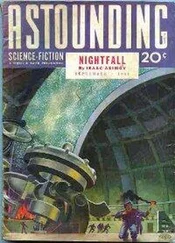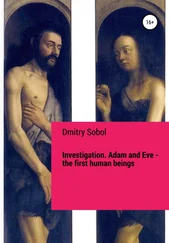The morning was bright and sunny but fresh with a sharp wind blowing. A good drying day. She pegged out the towels, using plastic pegs she’d scrubbed and dried along with the clothesline. Mr. Kroot’s sister had gone indoors, leaving weeds lying about all over the path. Minty shook her head at such fecklessness. She too went indoors and started thinking about what to have for lunch. She’d bought a nice piece of ham at Sainsbury’s and she was going to cook it herself. Buying cooked meat, in her opinion, was very risky. You never knew where it had been or the state of the pot it was boiled in. When she’d got the meat on, maybe she’d go up the road and get a Sunday paper now that Laf never brought theirs in to her.
First she went into the front room to look out of the window and see who was about. It was just as well she did, for as she lifted the half-drawn curtain she saw Laf and Sonovia come out of their house, wearing the serious expressions they always did when on their way to church. Sonovia had the blue dress and jacket on with a white hat and Laf a striped suit. Minty waited a bit to let them get out of the way, then she went off in the opposite direction to the paper shop.
It was quite a coincidence, she thought when she looked at the front page of the News of the World , a man murdered in that same cinema where she’d got rid of Jock’s ghost. The paper didn’t say when it was, only that the man was called Jeffrey Leach.
“There are more and more murders about these days,” Auntie’s voice said suddenly. “I don’t know what the world’s coming to. They’re all in gangs, them as get murdered, murdered by other gangs. You go down Harlesden High Street and it’s all gangs when it’s not yardies.”
Minty tried to ignore her. She sat down in the front room to read the paper. When she heard the machine stop she went to the kitchen and took the sheets and pillowcases out. One more sheet and a duvet cover still remained. She put them into the machine and carried the damp washing outside to the clothesline. Mr. Kroot was putting a colander full of potato peelings into his wheelie bin. All unwrapped, they were, just as they came off the potatoes. It made Minty feel quite sick, thinking of that bin having to be wheeled through the house in time for Brent Council’s waste disposal men to come and empty it. She kept her own bin in the front, padlocked to the wall-this was such a rough area, people were even capable of stealing your rubbish-and having scoured it, scattered emerald green disinfectant powder all over the inside.
“The duke of Windsor’s son was murdered,” Auntie said. “Him as should have been Edward the Ninth. Only when it’s someone famous they don’t say ‘murdered,’ they say ‘assassinated.’ It was in France. If he’d been in his rightful place it never would have happened.”
“Who cares?” said Minty, but knowing it was useless. “Go away, can’t you?”
More boiling water needed adding to the ham in the pot. She’d have boiled potatoes with it and frozen peas. Once when Jock was around, he’d got her to buy organic broccoli and when she’d washed it a pale-green caterpillar the same color as the stems had dropped out. Never again. She opened the knife drawer and there on the top was the one she’d used to get rid of Jock’s ghost. She’d boiled it and spoiled the color of the handle in so doing-it must be as clean as a knife could be, but somehow she couldn’t fancy slicing meat with it. She’d never fancy it, no matter how long she kept it. It would have to go. Shame, really, because she thought it was one of a set given to Auntie for her wedding in 1961.
“Nineteen sixty-two,” said Auntie.
John Lewis-that had been Jock’s name. Just like the Oxford Street store. How funny, she’d never thought of it like that before. If he’d lived she’d have been Mrs. Lewis and it would have been on envelopes, Mrs. J. Lewis. But she need not think of it, for he was gone. She put on her rubber gloves, washed the knife again, and dried it, wrapped it up in the sports pages of the paper, the ones she didn’t want to read, and then put it in a plastic carrier bag. Better not leave it in her wheelie bin. If no one could steal the bin they could steal what was inside it and what those gangs wanted was knives.
“That’s what they use,” said Auntie’s voice. “Guns aren’t easy to get hold of, you have to pay a lot of money for a gun, but knives are another thing. They all carry knives. That’s why there are all these murders. Gangs going after gangs. Good riddance to bad rubbish, if you ask me. It was a bomb killed Edward the Ninth, but he was different.”
“Go away,” Minty said, but Auntie went on muttering.
Maybe she should take the knife up to one of the big bins in the street. The one where she’d put her stained clothes would do. She was taking the third batch of washing out of the machine when the doorbell rang. Who could that be? Now that Laf didn’t come round with the papers, no one ever called on her unless it was Jehovah’s Witnesses. Auntie had liked the Jehovah’s Witnesses, she’d bought that Watchtower from them and agreed with everything they said, but she drew the line when it came to going about with them, knocking on people’s doors. Minty washed her hands and was drying them when the bell rang again. “All right, I’m coming,” she said, though no one could hear her out there on the step.
It was Laf and Sonovia. Minty stared. She didn’t say anything.
“Don’t shut the door in our faces, Minty love,” said Laf. “We’ve come in a spirit of goodwill and loving your neighbor as yourself, haven’t we, Sonny?”
“Can we come in?”
Minty held the door open wider. Sonovia tripped as she stepped on to the mat, her heels were so high. The blue dress that had hung loose on Minty was still a bit tight across the hips. She and Laf followed Minty into the front room, where it was gloomy as usual, even on a sunny day.
“It’s like this,” Laf began in the tone he used to teenage criminals who had reoffended. It sounded more like sorrow than anger. “Neighbors mustn’t go on not speaking. It’s not right and it’s not Christian. Now Sonn and me have just listened to this sermon all about loving your enemies, especially your neighbors, and we reckoned we’d come in here on the way back in a spirit of humility, didn’t we, Sonn?”
“I’m sure I’m not anybody’s enemy,” said Minty.
“And we’re not. Sonny has got something to say and it’s not easy for her, being somewhat puffed up with pride like the pastor said some folks are, but she’s going to humble herself and say it, aren’t you, Sonn?”
Sonovia said in a low, grudging voice that she hoped things would be all right now. “We could let bygones be bygones.”
“Say it, Sonn.”
She screwed up her face in agony at the prospect of an apology passing her lips. The words came out one by one and slowly. “I’m sorry. About the dress, I mean. I didn’t mean to upset anyone.” She looked at her husband. “I-am-sorry.”
Minty didn’t know what to say. This was a situation she’d never before been in. Auntie had quarreled with a lot of people but she’d never made it up afterward. Once you stopped speaking to someone you’d stopped for good. She nodded at Sonovia. As if all the words were new to her, as if in a foreign language she learned as a child but never since then used, she said, “Sorry. I’m the same as you. I mean, about bygones.”
The two women looked at each other. Sonovia took a step forward, with a helpful push from Laf. Awkwardly, she put her arms round Minty and kissed her cheek. Minty stood there and let herself be hugged and kissed.
Laf gave a sort of cheer and held up both his thumbs. “Mates again?” he said. “Pals? That’s the stuff.”
Читать дальше











